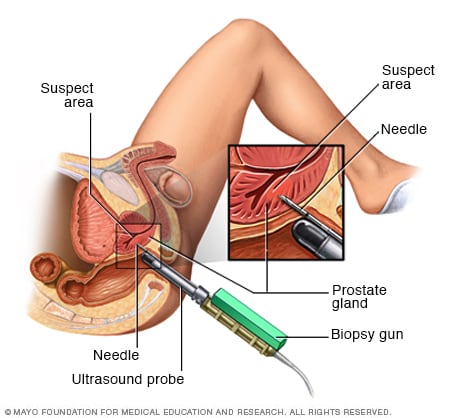10 Simple Techniques For Best Prostate Surgeon In Mumbai
10 Simple Techniques For Best Prostate Surgeon In Mumbai
Blog Article
Reliable Prostate Cancer Cells Therapy Choices for Guy
Prostate cancer is a common problem among guys, with treatment choices varying depending on the phase and aggressiveness of the illness. Additionally, methods like careful waiting and energetic surveillance are obtaining recognition for their duty in handling prostate cancer cells.
Surgical Procedure as Therapy Choice
Surgical treatment stands as a key therapy choice for prostate cancer people in situations where the illness is local and surgery is deemed suitable by the healthcare team. Prostate cancer cells surgical procedure aims to get rid of the malignant tissue from the prostate gland, either partly (prostatectomy) or entirely (radical prostatectomy) The choice to select surgery is commonly based on various aspects, including the stage of cancer, the individual's general health, and prospective side results.
One usual medical method is robotic-assisted laparoscopic prostatectomy, which supplies accuracy and very little invasiveness contrasted to conventional open surgery. This strategy uses robot arms controlled by the specialist to remove the prostate gland with improved dexterity and visualization.
While surgical procedure can be effective in eliminating localized prostate cancer, it might entail threats such as urinary system incontinence and impotence. Individuals considering surgical procedure ought to take part in thorough discussions with their health care companies to evaluate the benefits and potential disadvantages of this therapy alternative.
Radiation Therapy for Prostate Cancer Cells
Having explored the role of surgery in treating local prostate cancer, the focus now moves to discussing radiation therapy as another important treatment method for this condition. Radiation treatment uses high-energy rays to ruin and target cancer cells in the prostate gland. There are two primary kinds of radiation therapy generally made use of for prostate cancer cells: outside beam radiation and brachytherapy.
Exterior light beam radiation includes directing radiation from an equipment outside the body in the direction of the prostate. On the other hand, brachytherapy includes putting radioactive seeds straight into the prostate, delivering radiation from within.
Radiation therapy can be a standalone treatment for localized prostate cancer or used in mix with various other treatments, such as surgical procedure or hormonal agent therapy, depending on the stage and aggression of the cancer cells. Best prostate cancer hospital in India. Usual adverse effects of radiation therapy might consist of tiredness, urinary system problems, and bowel problems, which are generally short-term and can be taken care of efficiently
Hormone Treatment in Prostate Cancer
Hormonal agent therapy is a crucial treatment strategy in managing prostate cancer, specifically in cases where the cancer cells has actually spread out past the prostate gland. Prostate cancer cells typically depend on male hormonal agents, such as testosterone, to expand. Hormone treatment, also referred to as androgen deprival therapy, intends to either reduce the manufacturing of these hormones in the body or obstruct their results on the cancer cells.
There are different kinds of hormone treatment readily available for prostate cancer cells treatment. Some males might profit from a mix of these treatments to effectively take care of the cancer.
Hormonal agent therapy can assist reduce down the development of prostate cancer, ease symptoms, and enhance top quality of life. Nonetheless, it is not an alleviative therapy and may come with adverse effects such as warm flashes, fatigue, and loss of libido. Regular monitoring and conversations with doctor are important to take care of the results of hormonal agent treatment successfully
Immunotherapy for Prostate Cancer Cells
Immunotherapy has become an encouraging treatment method for prostate cancer, supplying new methods for combating the illness. Unlike traditional therapies like surgery or radiation, which straight target cancer cells, immunotherapy works by using the body's body official source immune system to assault and acknowledge cancer cells.
One type of immunotherapy being checked out for prostate cancer cells is checkpoint inhibitors. These medications target proteins that stop the immune system from assaulting and identifying cancer cells. By blocking these proteins, checkpoint preventions can boost the immune action versus prostate cancer cells.
An additional technique involves restorative vaccinations, which stimulate the immune system to target specific antigens located on prostate cancer cells. These injections can aid the body immune system recognize and destroy cancer cells better.


Watchful Waiting and Energetic Monitoring
In the world visite site of prostate cancer cells administration, especially for situations where aggressive treatment might not be immediately essential, the approach of watchful waiting and active security plays a substantial function. Careful waiting involves keeping track of the cancer without prompt therapy, stepping in only if the cancer cells reveals indications of development. This method is typically taken into consideration for older individuals with slow-growing growths or those with multiple health and wellness concerns where the threats of treatment may exceed the benefits.
Energetic surveillance, on the other hand, involves normal tracking through PSA tests, electronic rectal exams, and periodic biopsies. It is generally advised for patients with low-risk prostate cancer cells to carefully track any type of modifications in the cancer cells's behavior. If there are signs of the cancer cells ending up being a lot more aggressive, therapy options can be reassessed.
Both careful waiting and active surveillance goal to avoid unnecessary therapies and their possible adverse effects, such as urinary incontinence and impotence, while guaranteeing prompt intervention if the cancer cells progresses. These methods provide an equilibrium in between handling the cancer cells efficiently and maintaining the individual's quality of life.
Verdict

Prostate cancer cells surgical procedure aims to remove the malignant cells from the prostate gland, either partly (prostatectomy) or completely (radical prostatectomy)Having discovered the role of surgery in dealing with local prostate cancer cells, the emphasis currently changes to discussing radiation therapy as another crucial therapy technique for this condition.Hormonal agent therapy is a crucial treatment method in handling prostate cancer cells, especially in cases where the Best prostate cancer hospital in India cancer cells has actually spread out beyond the prostate gland. Careful waiting includes keeping track of the cancer cells without prompt treatment, interfering only if the cancer reveals signs of development. It is commonly advised for patients with low-risk prostate cancer cells to very closely track any kind of modifications in the cancer cells's behavior.
Report this page